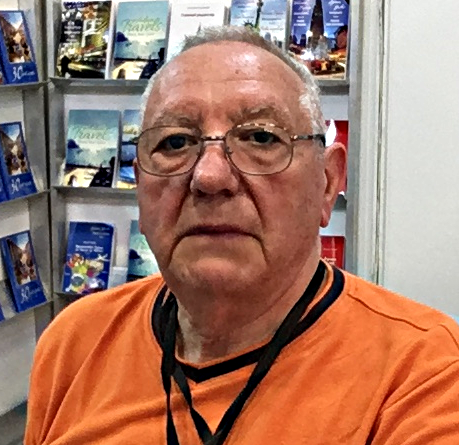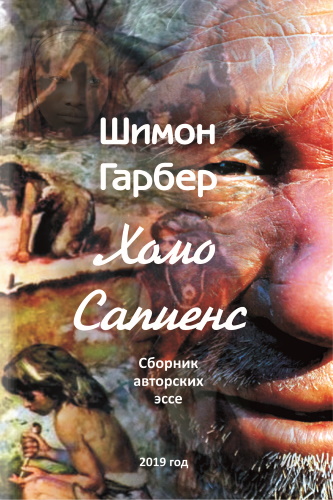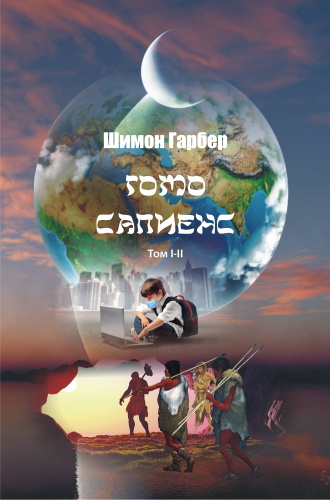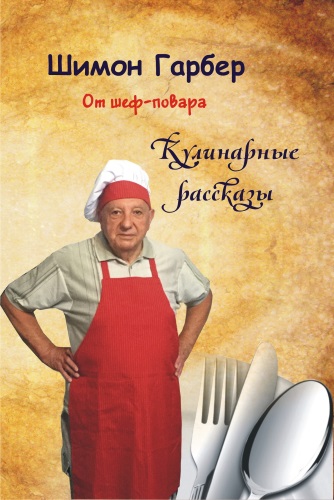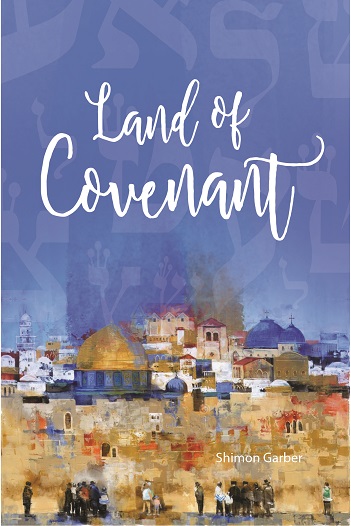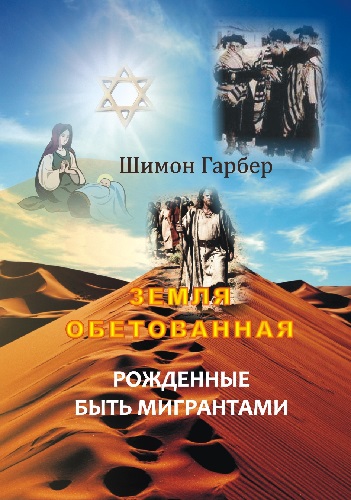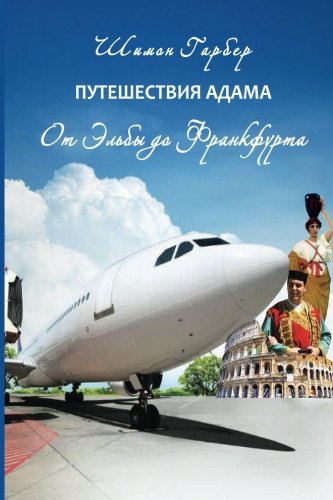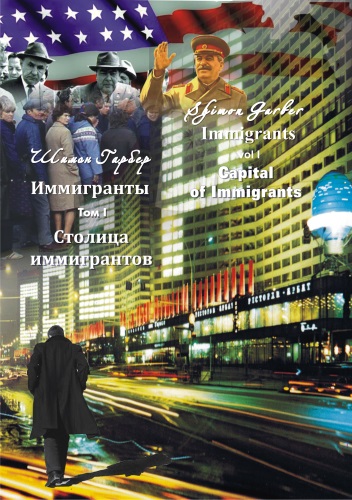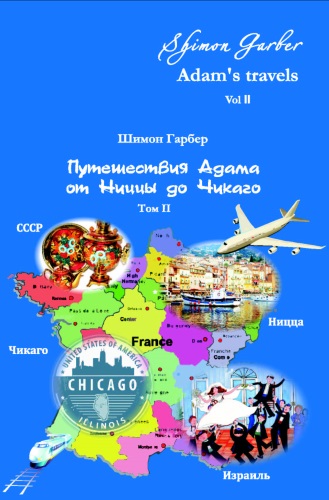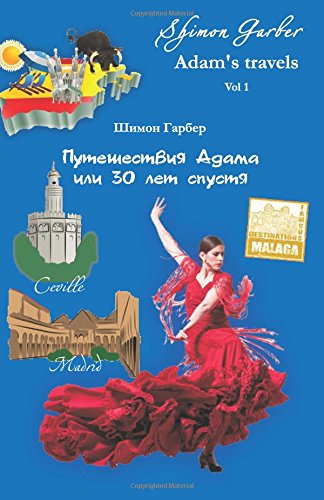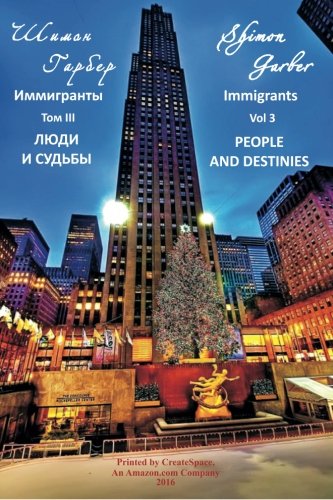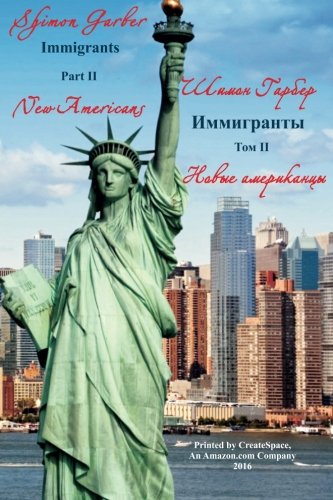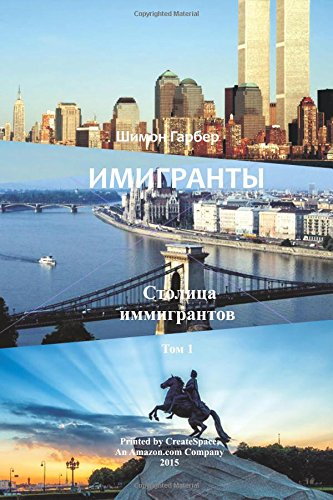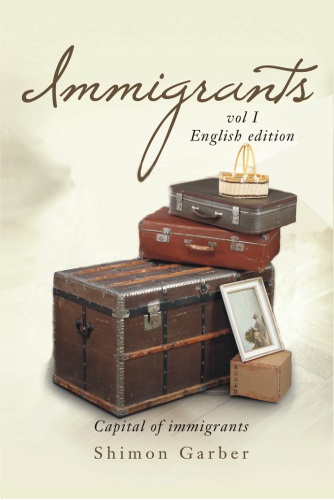
Immigrants
Immigrants Vol. I: Capital of Immigrants
Language: English
Published: 2017-07-31
Number of pages: 234
Printing: Newcomers Authors Publishing Group
ISBN-10: 1732261167
ISBN-13: 978-1732261167
Autor: Shimon Garber
Editor: Anastasia Olshevskaia
Type:
Chapter One: It’s Only the Beginning
Everything was left behind: his past life, work, and friends, the country where he was born and raised. Ahead lay a different culture, an unfamiliar language and an alien world.
Adam sat in an airplane, looking into the porthole on the clouds that hid his misty future and childish fear of something new, something unknown. And there was no one nearby who would say: “don’t be afraid; everything will be fine.”
Mama had died a long time ago, and although Adam was strong, having grown up on the mean streets of Leningrad, he now would give anything to hear his mom’s encouraging words—or just her voice, calling him. The desire to leave the old country, to go somewhere and start living anew, had been with him always, it seemed, but the starting point actually came one day in his childhood.
Adam, skipping as usual, ran for kerosene for the little stove, needing it to cook in the kitchen. He was clutching the handle of the tin can when he heard the loudspeakers, suspended like dead crows hanging on the walls of the houses. In a loud voice, the announcer told the terrible, impossible news: “death of our great leader, Joseph Stalin!”
People were frozen in shock. Many wept, not hesitating to show their tears, and they repeated aloud the same question: “How can we do without him? How do we live now?” Adam cried with them all and thought, “How am I to be now?”
He had heard about the danger, surrounded the country with too many enemies, and Comrade Stalin knew all of this and could defend it. Adam had thought, “And he has died, and, consequently, we will perish.” Adam’s jitters were great. He had never known his father’s love and care, and with the loss of the leader who had personified the image of a father, Adam was terrified.
But, amazingly enough, the world had not crashed, and life continued. People went to work and had meals, maybe without special joy, but still with a little pleasure.
Then, rumors of the cause of the leader’s death were heard everywhere. In the school, one of the boys stood up and said, “They are Jews—the doctors who killed Comrade Stalin!” The teacher explained that this was not right and that Comrade Stalin had died from severe disease. But many didn’t believe that. Adam was small and did not see his guilt in the tragedy of the Soviet people but instead had heared gossip of direct relevance to the Jewish race. Therefore, he had to get used to hiding his feelings.
Once in the classroom, the children quarreled with each other: “Is Adam a Jew?” One of his friends and fellow students claimed that Adam was Russian because, despite the suspicious name, his surname (Gardov) ended in “ov.” As it is known, all Russian surnames end in “ov” or “in.” Everyone tried their names in these proposed endings, and left that to be true. In response to a direct question, Adam would shrug. “I should ask Mom.” But he knew the response in advance. His wise, loving mom always told him, “If someone asks you, just say that your deceased father was Russian.”
There were other rumors that Stalin was not such a good man. Talking and thinking about this was scary. Adam read a lot and listened to his soul; doubt was sharpening his youthful conscience. Then, something strange happened. Comrade Beria, Stalin’s ally and friend, seemed to be an enemy and spy. The country was ruled by one leader or another, but they died very fast. Trusted people spread handwritten books among the population. They were called samizdat, and there were awful things about Stalin and the repression of dissenters. Whispers of disapproval among freethinking people grew louder; people lost fear and told jokes about the ridiculously painted world of revolution and even the Communist Party. Freedom-loving people were given prison sentences and were placed in madhouses. But, as one of the leaders said, the process went this way:
“If everything is a lie, and Stalin was a bad person, and if higher Communist Party authorities are either fools or lackeys and hangers-on, how are we to live further in this country? Now, all must be changed! The ulcer has been revealed! All the muck is out, and we will continue now that the wound is clean and can heal, and the people will live freely and joyfully!” These were the thoughts of Adam.
Alas, this did not happen. Adam grew up and waited for changes to come. There was the 1970s, a “period of stagnation,” as it was branded in the years to come. One of the leaders replaced the other deceased chairman of the party, and then came another, but nothing changed. All those same, sycophantic faces flickered on TV; it still made Adam sick even to look at the triumph of cretinism. Adam, when he was rising up the career ladder, used to tell his friends, “I’m waiting for when I’m thirty, and then, I’ll leave from here. I do not want to spend life in combat with stupid things and villains.” It got worse and worse. People got poorer; goods became more expensive. In the queues, people resented that bread was mixed with peas and that whale fat was added to sweet butter. Many food, as well other products supply disappeared in retail stores. The USSR, an exporter of wheat, transformed into an importer. To feed the country, it was necessary to purchase huge quantities of grain. Then, Americans pushed through the Jackson-Vanik amendment.
Bregnev, the leader of the Communist Party at that time, in his later years of ruling, had been on drugs. He had decided that, for the Soviet people, there was no remaining choice: in exchange for the permission to buy grain at a fair price from the United States, Russia allowed Jews only to reunite with relatives living in Israel. It gave rise not only to envy and resentment but also to many mixed marriages, in which one of the parties was an offshoot of the jewish nationality. How all the marriages occurred were the secrets of the honeymooners, but subsequent divorces spoke for themselves. The flow of immigration had surged, expanding more and more, and it threatened to carry out half the country. But it did not happen to all the willing people; there were those who were not allowed to leave the country if the KGB believed that they were holders of classified information and could give secrets out to enemies of the Soviet motherland.
People who did apply for permission to leave took serious risks. Many who were refused permission to go received “black labels” for rest of their lives and could only work as street cleaners or as stokers. “Outgoing” people were derided and condemned by colleagues, and excluded from society. Sanitoriums were full of citizens infected with a virus of freedom. The desire to leave the USSR was perceived as rebellion against the system.
Expats could not take any documents with them: passports, birth certificates, diplomas, state awards. They became disenfranchised.
Obtaining an exit permit depended on one’s ability to pay. For many, it became a serious obstacle. As a rule, there were many intelligent and educated people wishing to go. In addition, immigrants must give up their Soviet citizenship, at a cost of five hundred rubles. It was a large amount of money for those times. Understandably, apartments and other wealth could not be sold. It was prohibited. For those wishing to sell personal belongings, there were specialized secondhand shops. If you had something valuable, you would take it there and wait until it sold. Then, you would get some pennies—minus commission for the store, of course. Permission to leave was also given through special forms: lists of people and organizations, whose signature was listed and all should have to been collected for final authorization. The ruler realized the problem and ordered a stop to the flow of immigrants, and by the end of the 1980s, the stream had dried up.
Adam was lucky; he popped up at the end of 1979. Too many had problems with his biography. In his youth, he worked for government dachas (plases for receiving guests of the country), and who knows? This work suddenly can meant “classified,” as secret. Thererefor, the carrier of such information can not be released outside the counry and issue such information. In addition, in 1978, his sister Sonya left the USSR with her little son. That did not escape the attention of regulatory authorities. The chief of administration where Adam worked was informed. And Adam could be the cause of many problems to his boss. Their relations were friendly, respectful, and backed up financially. “Listen, Adam, as you know, I always respected you. Therefore, I will not beat around the bush. From the top, it was leaked that your sister went to Israel. I guess you are also going? No, do not say anything. You’re the director of our central enterprise. It is an eyesore. I’ll transfer you into the distant district of Kupchino so that, for both of us, it will be calmer.” Adam soon got an invitation from “relatives” from Israel and resigned voluntarily. On the face of his boss, he read a sad regret, yet he was relieved when he signed Adam’s dismissal and passed to the hands special document, called “employment book”, very important document, needed for registration at any job. Both understood that only through timely handling, Adam managed to avoid a layoff with the stigma of traitor and betrayer, which would mean big trouble for his superiors.
The next stage of preparing for departure was to fill out a package of documents in OVIR, the division dealing with visas and registrations. And his chanses—Adam knew, he got to be lucky. In case of refusal, he could, of course, fight and apply again and again but without any prospect of success. He would have had to start afresh, search for accommodation, and work with the “marked” brand that meant absolute futility. For two months, Adam waited in fear and anticipation. And when the call came from OVIR, he strode back. He wondered who he would be in a couple of hours: a free man or an outcast?
Fate favored him; OVIR gave the go-ahead. But another problem loomed: the letter issued required the signature of his former wife, with an obligatory indication of the absence of any substantive claims.
Two years ago, he had married; he did not quite understand why he married this woman. Relations did not exist, and the divorce had to go through the court. The three-bedroom apartment they had bought went to his wife in exchange for the so-called certificate of absence of material and other claims. Adam got out of the marriage with his car, and he rejoiced that all the problems with his property were behind him.
And then, it happened again. There was another required signature on a form that his former spouse would have to sign. Surprisingly, everything went smoothly. This form was signed, and Adam, breathing a sigh, went to the bank. He had to pay a fee of five hundred rubles to renounce his citizenship. With a special letter, he could exchange currency and get $150, the maximum that he could take out. With this sum, no papers, and no idea what the future held for him, Adam sat in a plane, flying to Vienna, Europe’s most beautiful city. It was the distribution point for “renegades and traitors of the Soviet motherland.”
Back